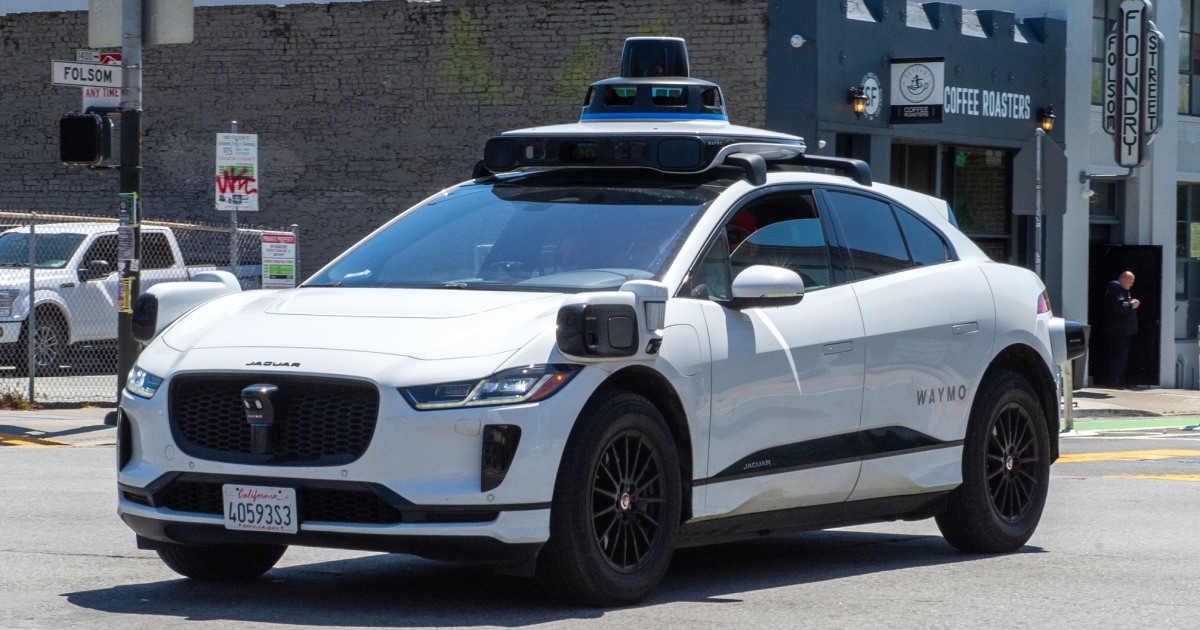Tech startup Waymo is seeking regulatory approval for a major expansion of autonomous taxis in California, a development that would bring driverless cars to potentially millions more people and create new competition for human-driven car services like Lyft and Uber in the nation’s second-largest city.
Waymo, which spun off from Google in 2016, already offers for-hire self-driving car services in San Francisco and Phoenix and has said it will launch soon in Austin. The service allows members of the public to call a ride from an app — similar to Uber or Lyft, but without a human driver. The company says it serves tens of thousands of rides per week in San Francisco and Phoenix.
Waymo said in a letter last week to the California Public Utilities Commission that it wants to offer its for-hire car service in two new areas: parts of Los Angeles and nearby cities such as Beverly Hills and Santa Monica, and the suburban cities and towns directly south of San Francisco such as Palo Alto and Sunnyvale. The proposed service areas include San Francisco International Airport and Los Angeles International Airport
“Angelenos, join us for a ride,” Waymo said in a post late Friday on X.
Waymo has already provided trial driverless rides in those areas, but not to the public as a paid service. Waymo said it has more than 50,000 people on its Los Angeles waitlist for free “on tour” rides.
“This is the next step in the rigorous regulatory process required to grow and commercialize our fully autonomous ride-hailing service in California,” Waymo said in a statement Tuesday.
“Thousands of Angelenos have already had a chance to ride with Waymo as part of our Waymo One Tour, and we’re excited to bring autonomous driving to more people,” the company said.
In San Francisco and elsewhere, the Waymo service has sparked debate over safety on the streets. Waymo says no one has died from a collision involving its vehicles, a record that it says is in stark contrast to the traffic deaths involving human drivers. Last year, traffic deaths eclipsed murders in the city of Los Angeles, with at least 330 traffic fatalities.
Waymo vehicles are sometimes involved in collisions, but experts say that human drivers of other vehicles are almost always at fault in such incidents. There have been deaths in connection with other companies working on autonomous-vehicle tech, including an Arizona woman who died in 2018 after a self-driving Uber car struck her, and a series of deaths involving Tesla vehicles reported last year by The Washington Post. Tesla last month issued a voluntary recall of more than 2 million vehicles over a feature known as Autosteer, which can control factors like the following distance, that the company said drivers had misused.
Waymo needs approval from the state utilities commission to move forward with the paid service. The commission said Tuesday it would accept written protests and responses through Feb. 8 before scheduling a vote on Waymo’s proposal. There’s no requirement to vote by a certain date.
Waymo does not need the approval of individual cities to expand because California gives the utilities commission — not local governments — the authority to regulate certain passenger carrier services.
Mayor John Erickson of West Hollywood, a city of 34,000 people in Los Angeles County, said he had not heard directly from Waymo about its plans. He said he’s eager to hear more before he decides if it’s a good idea.
“I really want these organizations to reach out and come to the cities that they’re going to be driving in,” he said in a phone interview. In his city, he said, “We’re all trying to work together to monitor new technology as it comes into our community.”
Erickson said the Los Angeles area’s approach to transportation isn’t working.
“I have witnessed firsthand the dangerous nature of drivers on our streets. They take residential streets and use them as freeways,” he said.
In August, after a whirlwind of lobbying and public comment, the commission voted 3-1 to allow Waymo and its rival Cruise to begin charging the public for rides in San Francisco. Cruise then lost its permits in October after one of its cars failed to detect a pedestrian trapped underneath the vehicle, leaving Waymo as the sole operator of autonomous taxis in the state.
There have also been questions about exactly how “driverless” the vehicles are. Last year, Cruise told CNBC that human workers intervened and provided “remote assistance” to its vehicles roughly every four to five miles.
But the Waymo autonomous taxis are still something of a spectacle in San Francisco, sometimes prompting tourists to pull out their phones to take photos or video of the vehicles driving without a human behind the wheel.
Lyft and Uber did not immediately respond to requests for comment Tuesday. Last year, Uber and Waymo announced a partnership in Phoenix where Uber users have the option of choosing an autonomous Waymo vehicle.


